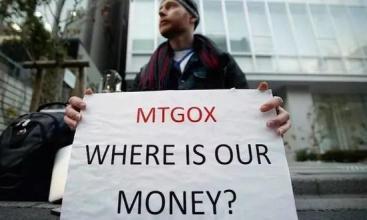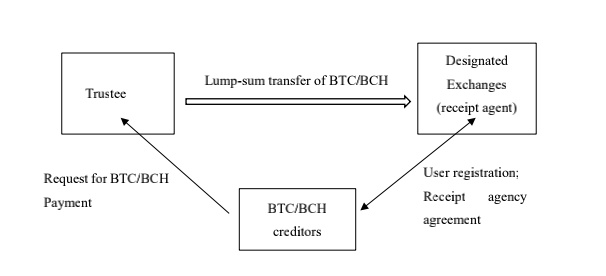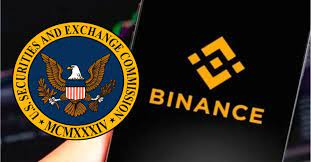The Mentougou case triggered a panic of BTC selling. Is the market overreacting?
Source of this article: Planet Daily
Author: Nan Xin

On the eve of Mt.Gox's creditors' annual meeting, a recent disclosure document reverted a draft repayment that could be used in the Mentougou case.
- International Securities Regulatory Commission: Global stablecoins may be subject to securities regulation
- The founder of the Bitcoin Foundation: miss the early bitcoins, optimistic about the integration of China and the US market
- The most complete timeline of the MakerDAO Black Swan incident.
According to the Mt.Gox liquidation and repayment draft document released by Kobayashi Nobunaga, the Mt.Gox exchange will pay fiat currencies, BTC, and BCH to creditors to settle their claims. Creditors in the Mentougou case can choose to accept fiat currencies or cryptocurrencies.
It is worth noting that the compensation of cryptocurrencies only supports BTC and BCH, and other positions will be liquidated as much as possible into cash.
A previous data showed that as of March 19, 2019, Mt.Gox's confirmed deposit balance was 69.553 billion yen (according to the exchange rate at the time of publication of about 628 million U.S. dollars); as for the balance of cryptocurrency assets, as of March 3, 2019 On 18th, Mt.Gox held 141686.35 BTC, 142846.35 BCH and a certain amount of BSV.
This plan has sparked heated discussions in the industry. People are worried that this huge repayment may bring huge selling pressure on the market and indirectly lead to a plunging market. Perhaps the most unstable factor in the short term is how Mentougou creditors deal with the coins in their hands.
Four key messages for clearing debt claims
After studying the preliminary liquidation draft given to the creditors by the Mentougou trustees, the Odaily Planet Daily summed up four points of information that deserve attention:
1. Supports three types of debt settlement methods: "fiat currency", "BTC" and "BCH"
In general, the draft revealed two claims distribution schemes, one is "fiat currency" cash payment; the other is "BTC", "BCH" cryptocurrency payment.
[Fiat cash payment]
· For users claiming fiat currency, Mentougou will pay in cash.
Claims in foreign currencies denominated in fiat currencies will be valued at exchange rates and international remittances will be made through bank accounts. The trustee will pay in Japanese yen, US dollar or euro fiat currency as requested by the creditor. Remittance fees and foreign currency conversion fees arising from foreign exchange shall be borne by creditors. If the creditor does not collect the money, the money will be deposited with the Japan Legal Affairs Bureau.
· For users claiming BTC and / or BCH, Mentougou also allows claimants to accept cash payments.
Calculate the fiat currency value of crypto assets according to the exchange rate of BTC and BCH against the Japanese yen. However, the trustee may sell all or part of the debtor's BTC / BCH with the permission of the court.
[BTC / BCH cryptocurrency payment]
· The default of not applying for cryptocurrency payment compensation is to request payment in cash ;
· Creditors who require BTC / BCH payment must apply within the specified date and can only apply once, and cannot be changed subsequently.
· BTC / BCH payments require users to register their accounts with other cryptocurrency exchanges, and agreements must be reached with the registered exchanges. As an agent, the exchange is responsible for receiving the BCH / BTC assets of the creditors, and the Mentougou attorney will transfer to the exchange at one time.
After the transfer, the terms and rules between the creditor and the designated exchange, the trustee will not participate in it and will not bear any responsibility.

(BTC / BCH payment logic)
2. Mentougou Trustee does not plan to purchase additional BTC and BCH
It is mentioned in the draft that the holdings of BTC and BCH in Mentougou may not be sufficient for acceptance. If this happens, creditors who require BTC / BCH liquidation will have some assets liquidated in fiat currency.
For example, if a creditor who claims a BTC claim claims 1,000,000 yen and only makes 1 BTC cryptocurrency payment, the remaining 250,682 yen payment will be paid in fiat.
In the above example of a BTC claim, the ratio of the claim amount paid in BTC to the total claim amount is approximately 75%. (1 BTC x BTC exchange rate (749,318.83 yen) ÷ 1,000,000 yen ≈ 0.75), if this happens, the trustee plans to use the same ratio (ie about 75%) for all other BTC claims that require BTC payments.
3. Position assets other than BTC and BCH will be liquidated as much as possible as cash
The draft mentioned that Mentougou Trustee believes that the yen, BTC and BCH will become the main source of liquidation distribution, and cryptocurrencies other than BTC and BCH will be liquidated as cash as much as possible.
4. Priority payment for fiat currency claims and small claims
It is mentioned in the draft that the policy given by the trustee is to give priority to fiat claims and small claims .
· Small Claims: Mentougou Trustee plans to provide each creditor with a small claim of no more than 200,000 yen. The small claim is mainly for users with relatively low claims or less than 200,000 yen.
· If each creditor has both fiat currency bonds and BTC / BCH claims, small claims will be used to pay fiat currency claims, and if there is a balance, they will be used for BTC / BCH claims.
In general, the liquidation draft given in the Mentougou case is considered a very conscientious plan.
From the scheme given by the trustee, Kobayashi Nobuyoshi, it is not difficult to see that the trustee's attitude may be more inclined to the creditor's choice of fiat currency to pay repayment.
On the one hand, cryptocurrencies other than BTC and BCH will also be liquidated into cash, that is, converted into fiat currencies to support fiat claims, on the other hand, they also promise to provide users with a priority payment channel for choosing fiat claims. In addition, even if the holdings of BTC and BCH are difficult to be redeemed, and when there are more legal currency holdings, they will not buy new BTC and BCH for repayment in French currency, but will convert the unpayable portion into fiat currency for cash payment. .
Of course, whether it is selling non-BTC, BCH cryptocurrency assets or repaying BTC and BCH directly to users, these settlement schemes have indirectly raised new market concerns-after Mentougou liquidation, a new round of selling crisis may come.
BTC, BCH, BSV or risk of hitting the plate?
In fact, the assets stolen from Mentougou have long been considered a time bomb.
As mentioned in the interpretation of the previous section, in the cryptocurrency scheme, the trustee of Mentougou recognizes only two cryptocurrencies, BTC and BCH, and the remaining cryptocurrencies other than BTC and BCH will be liquidated into cash. BTC, BCH assets may be sold.
The biggest ambiguity in this draft incident comes from how Mentougou will liquidate non-BTC and BCH funds. Especially BSV, BTG and other forked coin assets in Mentougou account.
According to a statistics published by the Internet, Mt. Gox used to hold nearly 202,000 BSVs (with a market value of 35 million US dollars). Since BSV is not included in the option of repaying creditors, this means that these BSVs held by Mt. Gox are facing a sell-off. Risk or has been sold. The point of view of foreign media Trustnodes is that if this draft is passed, about 135,000 BSVs will be sold or have been sold by trustees.
In fact, Mentougou encountered similar questions in 2018. At that time, Nobuaki Kobayashi, the trustee of Mentougou Assets, sold 24,600 BTC and 25,300 BCH.

(BTC and BCH sold from March to June 2018)
A previous report by cointelegraph revealed that Mt. Gox sold bitcoin worth tens of millions of dollars a week between February and June 2018. Coincidentally, within the same time frame, the price of bitcoin plummeted. From May 4th to the end of June, bitcoin fell from $ 10,000 to $ 5912, a drop of more than 40%. The view is that the liquidation of Mentougou may indirectly lead to a plunge in Bitcoin.
However, the trustee, Nobuyuki Kobayashi, responded to this query in a question and answer on the report of the Tenth Creditors' Meeting released in March.
Kobayashi explained that BTC and BCH were sold between December 2017 and February 2018, and based on the prevailing market price, they cooperated with a cryptocurrency exchange to sell BTC and BCH.
Kobayashi Nobuyoshi said that the sale of BTC and BCH only after consulting with cryptocurrency experts was not a normal sale through an exchange, but a way to avoid affecting market prices, while ensuring the security of transactions as much as possible. The BTC and BCH sales methods have also been approved by the court. The transfer of assets in BTC and BCH addresses does not necessarily mean the sale of BTC and BCH.
According to previous experience, if the Mentougou trustee wishes to liquidate non-BTC and BCH cryptocurrencies, it is likely to adopt the method adopted in 2018, perhaps through OTC and other methods.
Odaily Planet Daily checked the data of multiple cold wallet addresses in Mentougou tracked by CRYPTOGROUND and found that there are currently 137,891 BTC and 137,891 BCH in Mentougou BTC and BCH cold wallets. The on-chain data trends tracked by it also found that the latest transfers in the two cold wallets of BTC and BCH occurred on May 10, 2018.

The data given by the blockchain security company Paidun also shows that of the 80 Mt.Gox exchanges that it has detected, BTC has not changed since January 01, 2019, totaling: 137890.9654843 BTC. In addition, the monitored Mt.Gox attacker's address contained 79,956 BTC on the hacker account, and there were no changes in the number.
Is the market really overreacting?
Looking back over the past few weeks, the market is still continually turbulent looking for directions, and a strong positive event is urgently needed to help halve the arrival of the bull market.
But in turn, each extreme decline has been more or less corroborated with the selling behavior. For example, the Plustoken running funds that must be saved every time it falls will transfer assets, such as the ten-year-old miner selling off the market and so on. These events are reminding investors to be wary of selling this "time bomb" in large quantities.
Nowadays, the market trend may still depend on how creditors handle the coins in their hands.
The token locked in the Mentougou incident is definitely the next bomb. The view of the panicists is that once Mentougou users bought bitcoins at ultra-low cost. Once they got the same amount of bitcoin, it was a high price for them. If you no longer trust the cryptocurrency market, there is a high probability that it will sell quickly and put pressure on the market.
Foreign media Trustnodes also mentioned in the article that, in general, creditors are expected to recover 25% of the BTC / BCH and fiat currency investment that year. Theoretically, the creditor converted one dollar of the year to 25 cents today, and the assets shrank by three quarters.
But Trustnodes believes that despite this, these creditors have made a considerable profit, because the bitcoin has not been moved since 2014, during which the price of bitcoin has risen a lot.
Maybe we can calculate together. Under this undecided plan, did the Bitcoin holders in Mentougou have lost money?
On February 7, 2014, Mentougou suspended the Bitcoin withdrawal business. Bitcoin plummeted below $ 800 that day. But before February 2014, the highest price of bitcoin did not exceed $ 1200, which means that the cost of this group of creditors holding bitcoin should not exceed $ 1200. On March 25, 2020, the price of Bitcoin fluctuated around $ 6,700. When calculated, the price of Bitcoin rose by at least 458% during the Mentougou shutdown period.
If a creditor holds 1 bitcoin before Mentougou stopped serving, the current price is estimated at the highest $ 1200. Now that it is unlocked, one bitcoin should be converted into 0.25 bitcoins, which is worth $ 1675 based on the current price of $ 6700.
That is to say, based on the lowest return method, it is still profitable for creditors to choose to sell after they have obtained it.
It is foreseeable that if this draft is officially adopted at the creditors' meeting on the 25th, 140,000 BTC and BCH are likely to flow directly to the market and impact the current circulation. Odaily Planet Daily believes that investors should pay close attention to the trend of the Mentougou incident and be alert to downside risks such as collective selling.
The deadline for submitting the Mt.Gox aftercare plan is March 31, 2020, which means that the 6-year-old Mentougou incident will soon be settled.
What will happen on March 31? It may be that this draft is formally adopted, it may be a new plan that has been overturned, and it may be that the submission date of the aftercare plan has been postponed again. Odaily Planet Daily will continue to track and report on the follow-up treatment plan and market impact of the Mt.Gox incident, bringing a first-line interpretation
We will continue to update Blocking; if you have any questions or suggestions, please contact us!
Was this article helpful?
93 out of 132 found this helpful
Related articles
- Wu Jihan debuted on live broadcast: Bitcoin is hardly a safe haven in a volatile world
- President of the Beijing Internet Court: Black technology such as "Tianping Chain" provides advanced experience for the blockchain system of the court system
- What kind of blockchain project is worth investing in? Graph Network Data Tells You | Babbitt Industry Lesson
- Viewpoint | Ethereum 2.0 inspired by the Ethereum 1.0 upgrade
- Perspectives | Numerous entrepreneurial opportunities can be found through blockchain in the next decade
- Opinion | Crypto analyst Tuur Demeester: Bull market trend may resume, and my bullish stance on Bitcoin remains unchanged
- Depth | Favorable policies come out frequently. Will 2020 be the first year of blockchain outbreak?





